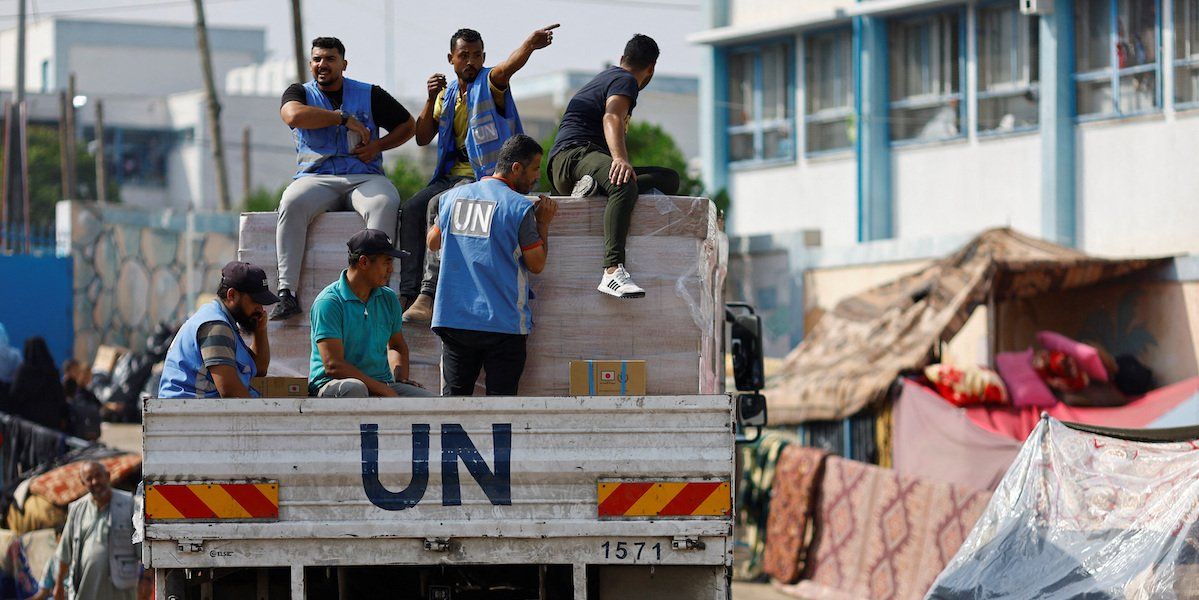One of the most important, unresolved questions surrounding the ongoing war between Israel and Hamas is who will govern Gaza once the fighting finally stops.
Germany has proposed that the UN take control in the coastal enclave when the war ends, according to a document reviewed by Politico. The two-page proposal from Germany, dated Oct. 21, said this should occur in concert with “a carefully organized transition” toward Palestinian self-rule via elections with an international coalition providing security.
Germany presented this scenario as the most desirable in comparison to other options, including Hamas retaining control or the reoccupation of Gaza by Israel.
Israel recently said it would take indefinite responsibility for security in Gaza, leading the United States to warn the Israeli government against reoccupying the territory and President Joe Biden said yesterday a "real" Palestinian state must come after the war. Israel says it has no interest in governing Gaza after the war, but it’s unclear if it would welcome the idea of the UN taking control. Israel has often accused the UN of harboring bias against it.
Meanwhile, Palestinian leaders have pushed against any conversations on post-war Gaza until there’s a cease-fire. Abdalrahim Alfarra, the head of the Palestinian Mission to the EU, Belgium, and Luxembourg, told Politico it would be “unacceptable” for the UN to take control in Gaza.
If not the UN, then who?: It’s widely agreed that neither Israel nor Hamas should control the Gaza Strip. And Egypt, which borders Gaza, doesn’t want the job. The US has suggested the Palestinian Authority should play a key role in post-war Gaza, but the PA is unpopular with many Palestinians and could struggle to establish legitimacy. Along these lines, the UN could be the best option, at least temporarily, for providing a semblance of stability in a territory rocked by instability for decades.
